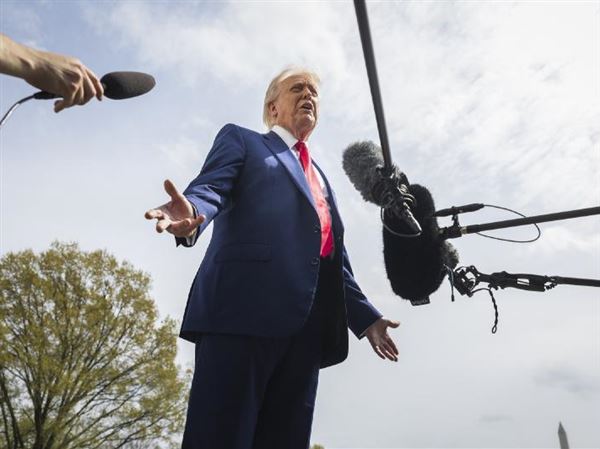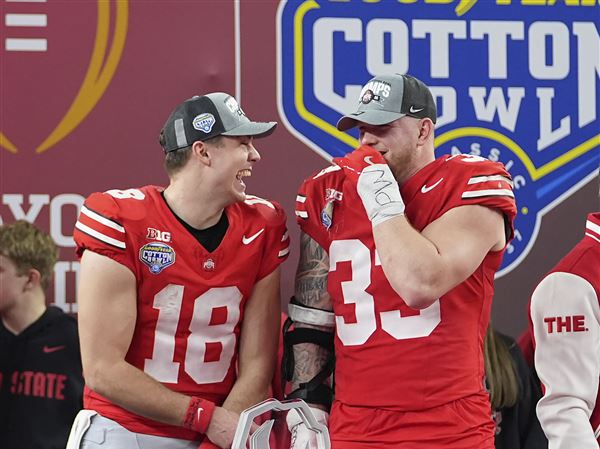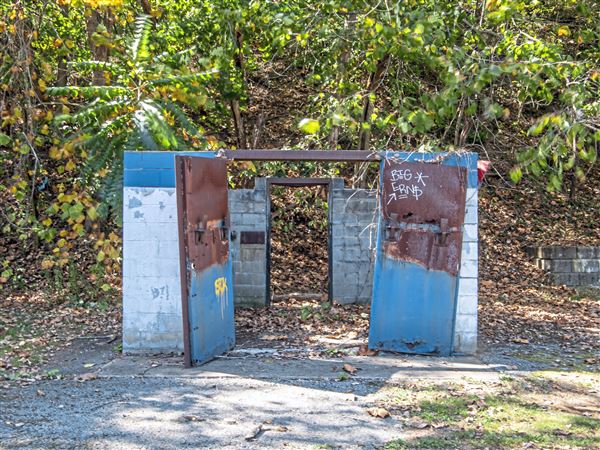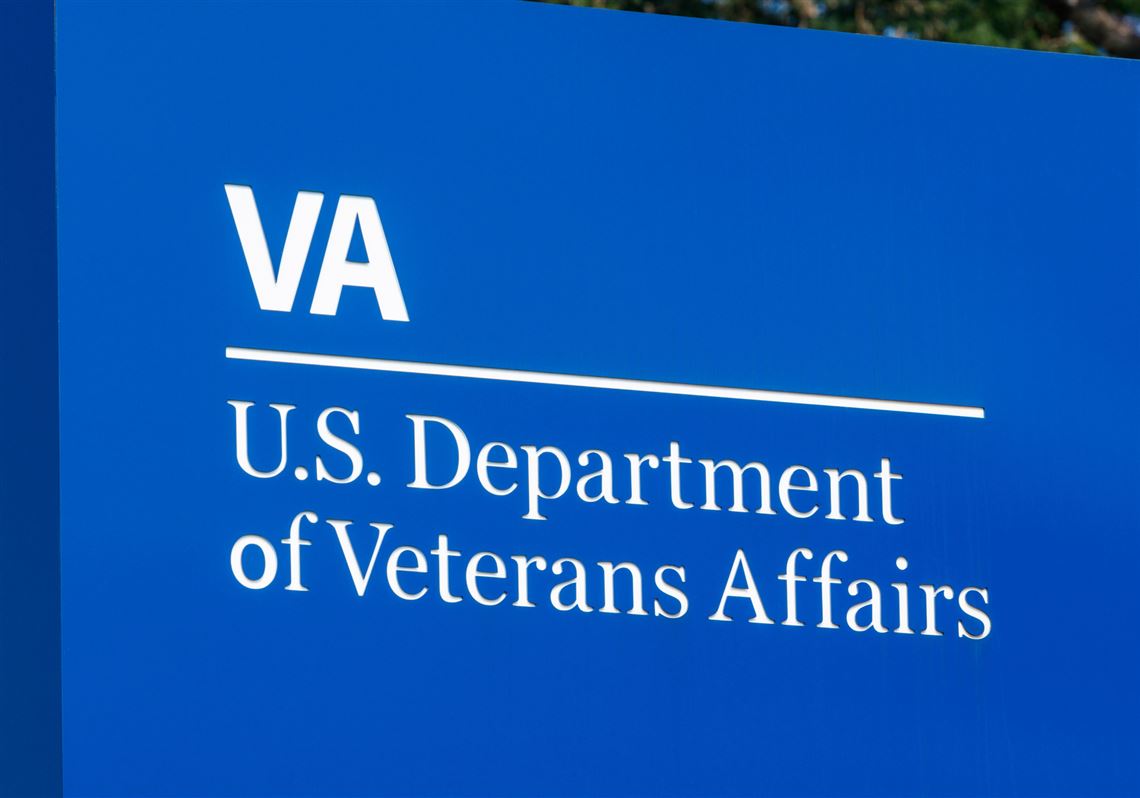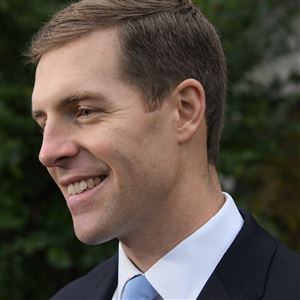WASHINGTON — When Rep. Chrissy Houlahan separated from the U.S. Air Force in the early 1990s, she said she found the U.S. Department of Veterans Affairs to be “impenetrable,” a poorly understood and possibly unwelcome place.
She suspects the stubbornly high veteran suicide rate today is linked to barriers — be it a long drive, bureaucratic confusion or a cultural divide — that have persisted between the VA and a significant portion of the country.
That’s why Ms. Houlahan, a first-term Democrat representing the Philadelphia suburbs who has spent most of her working life as an engineer and entrepreneur, has put herself on the front lines in Washington to expand mental health care services to hard-to-reach veterans.
Yet one idea she has championed — a grant program for community organizations that may better reach veterans — has touched a nerve with some other Democrats, VA employees and health advocates. They fear that the measure, while well-intentioned, is another step toward privatizing the massive government-run health care system.
Ms. Houlahan was the top Democratic co-sponsor of the Improve Well-Being For Veterans Act, which would establish federal funding for organizations to provide a range of suicide prevention services. The bill, introduced last June by Rep. Jack Bergman, R-Mich., includes mental health screenings, therapy, medication management and assistance connecting with employment and job training among those services.
In an interview in her office Thursday, Ms. Houlahan disagreed that the grant program would be a move to outsource VA services. She argued that the new funding would be an effective, lean way to reach veterans while, at the same time, strengthening the VA.
“The idea is to broaden the places where people can access help,” she said. “Veterans aren’t accessing resources … and we need to be able to spread that out as far and wide as it possibly can.”
“We’re talking about suicide,” she added. “We just don’t have time to screw around on this.”
The VA estimated that the suicide rate among veterans reached 27.7 per 100,000 veterans in 2017, up from a rate of 18.5 in 2005. That upward tick is mostly because the U.S. veterans population has steadily declined.
In total, the VA counted 6,139 veterans who took their own life in 2017, or nearly 17 veterans each day, roughly the total number of annual veteran suicide deaths each year since 2008, according to the agency’s most recent suicide report released last year.
The report also included a statistic often cited by the bill’s supporters: Among veterans who died by suicide in 2017, 62% never visited a VA health facility in the previous year.
Old debate
Concerns about VA privatization are nothing new. Lawmakers have debated for years how to expand services and fix flaws in the VA system while maintaining the quality of care.
“VA’s better than the private sector on mental health. You can’t match it,” said Russell Lemle, who served 25 years as the chief psychologist at the San Francisco VA Healthcare System.
In 2014, Congress set criteria, including a veteran’s drive time to the nearest VA, for when veterans could seek health care at non-VA facilities. Wait times were soaring at some VA hospitals, and the Phoenix VA was engulfed in scandal for fudging its metrics.
That criteria for accessing community-based care was revised in the Mission Act of 2018.
Now, the proposed Improve Act would take those models and apply them to mental health care. Congress is moving to “erode” the VA by depriving it of resources, said Mr. Lemle, a senior policy analyst for the Veterans Healthcare Policy Institute, a research nonprofit based in Oakland, Calif.
“It’s another step closer to the notion of a privatized system, where you walk into any mental health provider anywhere,” Mr. Lemle said.
Community mental health providers, he added, would not have to adhere to VA care standards. Those organizations often show a poorer record compared to the VA on patient outcomes, such as change in suicide rate among patients, according to his research.
The Improve Act, for the first time, would allow patients to seek private care without first seeking a referral from the VA — to the possible detriment of veteran care, said Marilyn Park, legislative director for the American Federation of Government Employees, which represents VA workers.
“The VA is claiming there are people who don’t want to use the VA, but we don’t know that,” Ms. Park said. “To be suddenly chopping off a whole bunch of people and sending them off … is troubling.”
“We don’t know anything about the competency of the people treating them,” Ms. Park added.
During a December markup hearing on the bill, the House Veterans Affairs Committee, controlled by Democrats, voted along party lines to amend the Improve Act to strengthen the grant eligibility requirements on community organizations: requiring a matching grant and imposing a tougher evaluation.
“We should not be creating another private, [duplicate] community care program that sends money outside of the VA health care network through a grant program,” said Rep. Mark Takano, D-Calif., the committee’s chairman.
Rep. Phil Roe, R-Tenn., the committee’s top Republican and a physician, argued that only a handful of counties in his largely rural district would be able to meet those rules.
“That definition creates a very high bar to participate in this program that will prevent many worthy organizations across the country — particularly those in rural and remote areas where many veterans live — from being able to participate in the program,” Mr. Roe said.
Veteran service organizations have largely supported the bill without big limits for the organizations that could provide care.
Requiring a small community organization to secure a matching grant is “going to be a limitation. We certainly want a deserving program to be able to participate,” said Carlos Fuentes, director of national legislative service for the Veterans of Foreign Wars.
“There’s a gap in what the community provides and what the VA provides,” he said. “There is a need to leverage the community in reducing the risk of suicide.”
In October, VA Secretary Robert Wilkie wrote in an op-ed that he would like to see the Improve Act pass because “the government needs to reach far beyond its walls and work with as many partners as we can.”
The bill “would allow the VA to get veterans the help they need more quickly than ever before,” he wrote.
A spokesperson for the Pittsburgh VA Healthcare System declined to comment on the pending legislation. She passed along information that highlighted the network’s resources, including an investment in tele-health technology and a staff of suicide prevention counselors.
Efforts to reach Pittsburgh-area mental health workers represented by the VA workers union were unsuccessful.
Helping women vets
In the interview, Ms. Houlahan said she has been emphasizing access to VA health care as part of a more cohesive transition for a particularly vulnerable demographic: women. The congresswoman secured funding to expand a four-hour training and education program that connected women to the VA.
Women are particularly vulnerable to falling through the cracks during that transition, she said.
“I’m a woman and I’m a veteran and I didn’t even think for a minute that that was something that I had access to,” she said.
“We need to push people to the VA,” she added. “And the way that we can push people to the VA is to let them know it exists and that they’re welcome there. And a lot of women don’t feel like it exists and that they’re welcome there.”
Ms. Houlahan has also co-sponsored a bill to simplify the country’s National Suicide Hotline, currently 1-800-273-8255, into a universally recognized number, like the 911 emergency system.
She said she couldn’t guess when the Improve Act might be brought up for a full vote on the House floor. Though the bill has garnered wide support, the bulk of co-sponsorship lies with the minority GOP: About 4 of 5 Republicans have signed onto the bill, compared with only about 2 of 5 Democrats.
Distractions abound on Capitol Hill. As she spoke during the interview, House Speaker Nancy Pelosi and President Donald Trump publicly sparred over congressional war powers related to Iran tensions. Mr. Trump’s looming impeachment trial in the Senate will also consume much of the oxygen.
Ms. Houlahan said she has been in touch with Senate staff on that chamber’s companion bill. She has spoken with VA Secretary Robert Wilkie several times about the bill and described him as “really interested and engaged.”
“If there’s anything we can find common ground on, I would hope that this is the thing,” she said.
The National Suicide Hotline is 1-800-273-8255.
Daniel Moore: dmoore@post-gazette.com, Twitter @PGdanielmoore
Story updated at 1:24 p.m. on Monday, Jan. 13, 2020.
First Published: January 13, 2020, 11:45 a.m.
